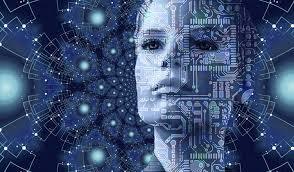
Introduction
How will quantum computing change the future of technology and industry? Imagine a world where complex problems are solved in seconds, cybersecurity is unbreakable, and artificial intelligence surpasses current limitations. As we stand on the brink of a technological revolution, quantum computing promises to transform everything from cybersecurity to artificial intelligence. By the end of this blog, you’ll understand the fundamentals of quantum computing, its applications, and its potential impact on various sectors, empowering you with knowledge that could be pivotal in the coming years.

What is Quantum Computing?
Quantum computing is a type of computation that leverages the principles of quantum mechanics, a fundamental theory in physics that describes nature at the smallest scales. Unlike classical computers, which use bits to process information as 0s or 1s, quantum computers use quantum bits or qubits. Qubits can represent and store information in a superposition of states, meaning they can be both 0 and 1 simultaneously. This property, along with entanglement and quantum interference, allows quantum computers to solve certain complex problems much faster than classical computers.
Key Concepts in Quantum Computing
- Qubits: The basic unit of quantum information. Unlike classical bits, qubits can exist in multiple states at once due to superposition.
- Superposition: A quantum system’s ability to be in multiple states simultaneously. This allows quantum computers to process a vast amount of possibilities at once.
- Entanglement: A phenomenon where qubits become intertwined, so the state of one qubit directly affects the state of another, no matter the distance between them.
- Quantum Interference: Used to amplify the probability of correct outcomes while canceling out incorrect ones.

Quantum Computing Applications
Quantum computing has the potential to revolutionize numerous fields. Here are some key applications:
- Cryptography: Quantum computers could break current encryption methods but also create unbreakable codes using quantum key distribution.
- Artificial Intelligence: Enhance machine learning algorithms, making AI more powerful and efficient.
- Drug Discovery: Simulate molecular structures quickly, leading to faster drug development and personalized medicine.
- Financial Modeling: Solve complex optimization problems in finance, improving risk management and investment strategies.
- Climate Modeling: Provide more accurate models to predict climate changes and devise strategies to mitigate them.

How Quantum Computing Works: An In-Depth Guide
Quantum computing operates on principles vastly different from classical computing. Here’s a deeper look at its core mechanics:
- Quantum Gates: Analogous to classical logic gates, quantum gates manipulate qubits through operations that change their state, forming the basis of quantum algorithms.
- Quantum Algorithms: Algorithms such as Shor’s algorithm for factoring large numbers and Grover’s algorithm for searching unsorted databases exemplify quantum speedup.
- Quantum Hardware: Technologies like superconducting circuits, trapped ions, and topological qubits are being explored to build stable and scalable quantum computers.

Current Challenges in Quantum Computing and How They’re Being Addressed
Quantum computing is still in its infancy, facing several significant challenges:
- Decoherence: Quantum states are fragile and can be easily disrupted by their environment. Efforts are being made to develop error-correcting codes and more stable qubit systems.
- Scalability: Building a large number of qubits that can work together coherently is a massive engineering challenge.
- Cost: Quantum computers are expensive to build and maintain, requiring advanced materials and extremely low temperatures.

Researchers and companies are making strides to overcome these hurdles, paving the way for more practical and accessible quantum computing solutions.
The Future of Quantum Computing
The potential of quantum computing is vast. In the next decade, we might see:
- Advancements in Quantum Algorithms: Development of new algorithms that can solve previously unsolvable problems.
- Integration with Classical Computing: Hybrid systems that leverage the strengths of both classical and quantum computing.
- Commercial Quantum Computers: Availability of quantum computing as a service, enabling businesses to solve complex problems without owning quantum hardware.

FAQs
- What is quantum computing in simple terms? Quantum computing uses the principles of quantum mechanics to process information in a fundamentally different way than classical computers, allowing it to solve certain complex problems much faster.
- How does a qubit differ from a classical bit? A classical bit can be either 0 or 1, while a qubit can be in a state of 0, 1, or both simultaneously due to superposition.
- What are some real-world applications of quantum computing? Quantum computing can revolutionize fields like cryptography, artificial intelligence, drug discovery, financial modeling, and climate modeling.
- What are the main challenges in developing quantum computers? Challenges include maintaining quantum coherence, scaling the number of qubits, and reducing costs.
- When can we expect quantum computers to be widely available? While it’s hard to predict, significant advancements are expected in the next decade, with more practical applications and commercial availability on the horizon.
Conclusion
Quantum computing stands as one of the most exciting advancements in modern technology, with the potential to solve problems that are currently beyond our reach. As we continue to overcome existing challenges, the future of quantum computing looks promising. For tech enthusiasts and professionals alike, staying informed about these developments is crucial.
Personal Reflection
As someone passionate about technology, I find the possibilities of quantum computing both fascinating and inspiring. The journey from theoretical physics to practical applications demonstrates the incredible potential of human ingenuity. By understanding and embracing this technology, we can look forward to groundbreaking advancements that will reshape our world in unimaginable ways.

